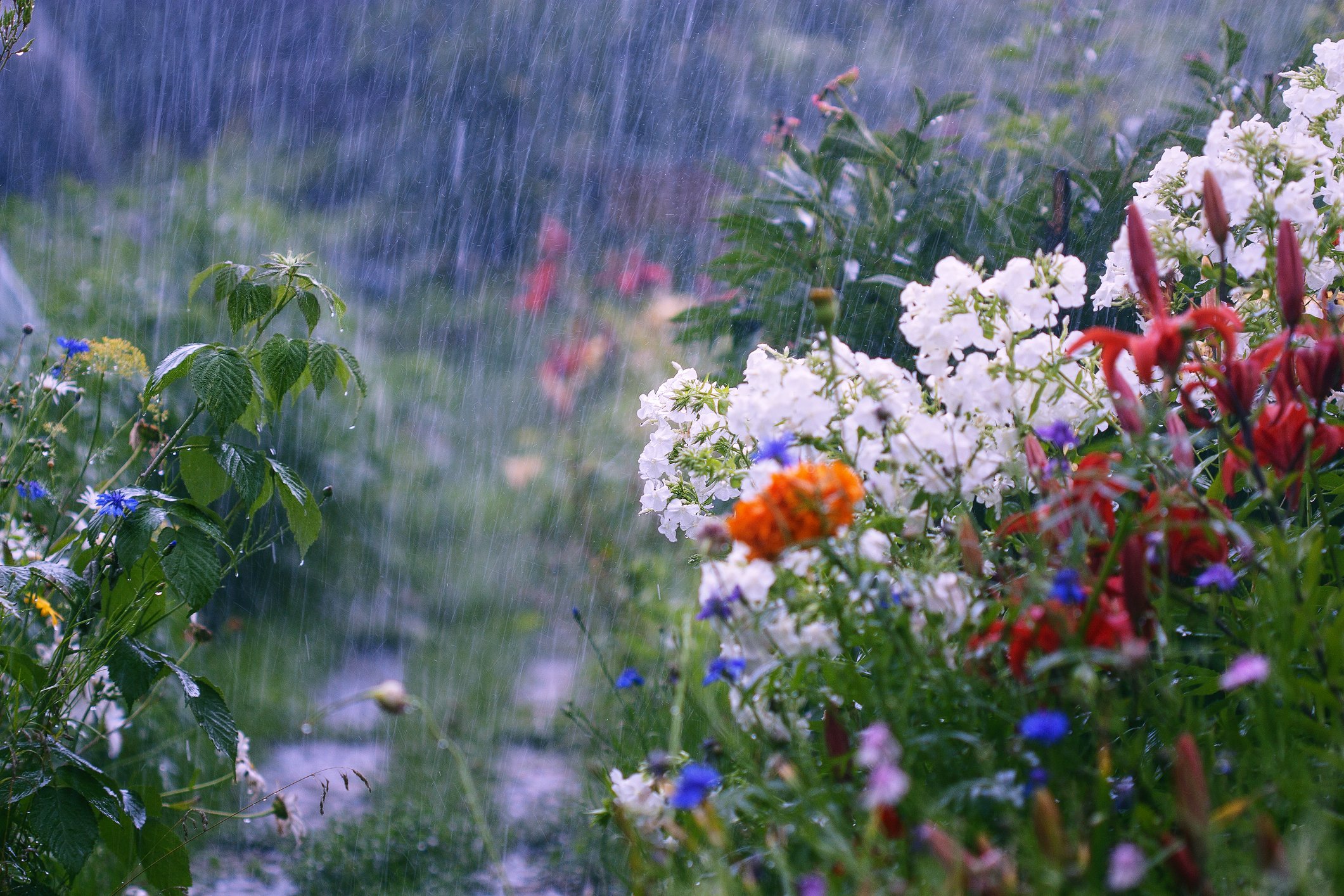New Jersey had a dry spell that devastated many gardens and farm crops in the Garden State this spring, but over the past two weeks, it has rained almost every day and that’s not good either.
As gardeners, we often hear about the importance of watering our plants regularly to ensure their health and vitality. However, there is another side to the watering equation that often goes unnoticed: excessive rainfall. While rain is undoubtedly essential for a thriving garden, too much of it can lead to a host of problems. I
Soil Saturation and Drainage Issues:
One of the primary concerns associated with excessive rainfall is soil saturation. When the ground becomes oversaturated, it hampers the roots’ ability to absorb oxygen, leading to root rot and other water-related issues. Prolonged exposure to waterlogged soil can cause the roots to suffocate and eventually die. Additionally, compacted soil and poor drainage exacerbate the problem, further hindering plant growth.
Nutrient Leaching:
Rainwater can be a double-edged sword when it comes to providing nutrients to plants. While it does bring essential minerals and elements, excessive rainfall can lead to nutrient leaching. As the rainwater seeps through the soil, it carries away valuable nutrients, leaving the plants deprived. This leaching effect can be particularly detrimental to plants with shallow root systems that rely heavily on the topsoil for nourishment.
Disease and Fungal Infections:
Excessive moisture creates an ideal breeding ground for various fungal diseases. Damp conditions promote the growth of fungi, including molds, mildews, and blights, which can quickly spread among plants. Fungal infections weaken the plants, causing leaf spots, wilting, stunted growth, and even plant death. Moreover, prolonged wetness can also contribute to the proliferation of pests like slugs and snails, further compromising plant health.
Erosion and Soil Loss:
Intense or prolonged rainfall can lead to soil erosion, especially on sloped or poorly protected garden areas. The force of the water can wash away topsoil, which is crucial for plant growth and contains valuable nutrients. Erosion not only damages the aesthetic appeal of your garden but also disrupts the delicate balance of the ecosystem. It can take a considerable amount of time and effort to restore eroded areas and replenish the lost soil.
Mitigating the Impact of Excessive Rainfall:
While we cannot control the weather, there are steps we can take to minimize the negative effects of excessive rain on our gardens:
- Improving Drainage: Ensure that your garden has adequate drainage by amending the soil with organic matter, creating raised beds, or installing drainage systems.
- Mulching: Apply a layer of organic mulch around plants to help regulate soil moisture levels, prevent erosion, and protect against fungal infections.
- Raised Beds and Containers: Consider planting in raised beds or containers to provide better drainage and control soil saturation during heavy rainfall.
- Disease Prevention: Practice good garden hygiene by removing infected plant material promptly and providing adequate air circulation to reduce the risk of fungal infections.
- Rainwater Collection: If permitted in your area, collect rainwater in barrels or tanks during periods of excessive rainfall. You can then use this stored water during drier periods to maintain a balance in watering.
While water is vital for the health of our gardens, excessive rainfall can present its own set of challenges. From soil saturation and drainage issues to nutrient leaching and the spread of diseases, too much rain can harm our plants and disrupt the ecosystem.
By implementing proper drainage techniques, mulching, and practicing good garden hygiene, we can mitigate the negative effects of heavy rainfall and ensure that our gardens thrive even during the wettest

